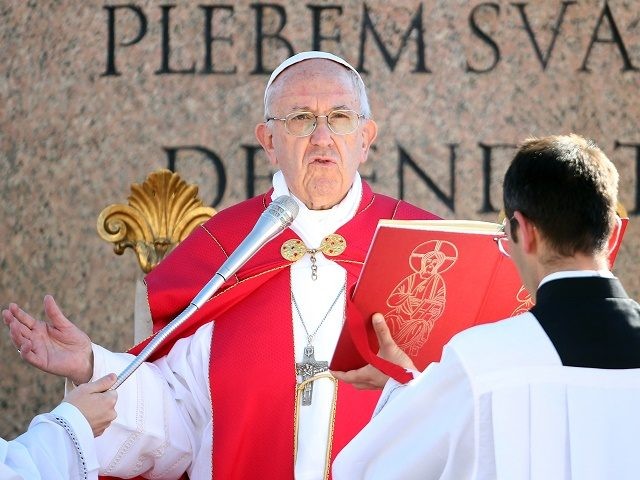Pope Francis tied a lack of water in different parts of the world to global warming Sunday, calling it one of the “inevitable consequences of climate change.”
In his message for World Water Day 2019, the pope called for education of future generations in a greater respect for the environment and a greater awareness of the suffering caused by climate change.
This educational challenge will produce “generations that value and love the resources that our mother the Earth gives us,” he said.
The pontiff also decried the spread of droughts and waterless areas and urged the international community to come to the assistance of those impacted by the phenomenon.
“It may be seen in our days how the aridity of the planet is extending to new regions, and more and more are suffering as a result of the lack of water sources suitable for consumption,” Francis lamented, while calling for “an end to this injustice” and reiterating his conviction that access to clean water is “a fundamental human right.”
The disadvantaged of the earth “challenge us to find a remedy for the lack of water in their countries,” he said, “they also challenge us, from their poverty and limits, to accord the just value to this good, essential for the development of all peoples.”
This is not the first time that the pope has weighed in on water conservation. It has been, in fact, a recurring theme since the beginning of his pontificate in 2013 and he is the only pope in history to write an encyclical letter on the environment.
Two years ago, Francis addressed the international summit “Water and Climate: Meeting of the Great Rivers of the World,” sponsored by the United Nations Economic Commission for Europe (UNECE) in which he expressed his concern for water conservation around the world, as well as his fervent desire that “the threat posed by climate change to our brothers and sisters in the most vulnerable countries will find prompt and effective responses.”
Last fall, the pontiff called the lack of safe drinking water in the world an “immense shame,” adding that better access to drinking water must be provided to people around the globe.
People dying from the lack of clean water “is an immense shame for humanity in the 21st century,” he said, yet “unfortunately, in many of the countries where the population does not have regular access to drinking water, there is no shortage of arms and ammunition, which continues to worsen the situation.”
The pope’s frequent comments on the topic of water have even led to criticism from with his own Jesuit order, with warnings that he risks making the Church sound like just one more social justice NGO with no unique message for humanity.
In a powerful essay last October, Jesuit Father James V. Schall suggested that Pope Francis has invested much time and effort into political and secular topics such as climate change and immigration while seemingly downplaying key issues of Catholic moral teaching.
Father Schall, a prominent intellectual who taught political science at Georgetown University for many years, took issue specifically with the pope’s Letter on the World’s Day of Prayer for Creation, which focused on access “to clean water,” a topic that would seem to fall outside the specific mission of the Catholic Church.
“Christ walked on water, turned water into wine, helped a woman at a well draw it up, and was baptized with it in the Jordan,” Schall noted. “He never designed a dam to provide water for Nazareth or Jerusalem. He evidently assumed that men could eventually figure this task out without the need of revelation.”
“A pope can mention the problem of water availability or other such issues, but his is not the task to provide technical solutions even if he had a doctorate in water engineering,” he added.
More importantly, many people of good “will wonder why, if the pope can talk of clean water, he cannot talk about his own record or what he holds on issues that certainly do fall within his competency. These latter issues are what perplex people,” he said.
“Pope Bergoglio himself seems willing to talk about almost every subject but his own beliefs and record,” he said.
Follow Thomas D. Williams on Twitter Follow @tdwilliamsrome

COMMENTS
Please let us know if you're having issues with commenting.